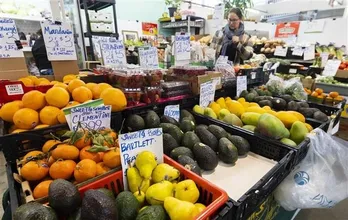
Illustrative image (Photo: VNA)
The article, by Michael Smith, said Prime Minister Scott Morrison arrives in Vietnam, a booming nation of 97 million where growth has remained strong.
Vietnam is on track to this year keep up the GDP growth rate of over 6 percent that it has maintained since 2000.
Cheap labour, a young population, high education standards, and government policies which offer tax breaks and other incentives for international firms have seen a surge in foreign direct investment, according to the article.
Vietnam granted investment licences to more than 1720 projects in the first six months of the year, up 26 percent.
The country, best known to Australians as a laid-back holidays destination, is now on the radar for big business attracted by its open investment policies, cheap labour and young workforce.
Wes Maas, a former South Sydney rugby league player who founded NSW-based construction materials, equipment and services company Maas Group, first saw the potential in Vietnam several years ago, the article said.
The company he runs out of Dubbo had already been buying equipment from Vietnam for 18 years. But when its local partner was taken over, Maas decided to go it alone.
The company fast-tracked an initial three-stage plan to build a factory which would make underground mining equipment. Instead, it built the 30,000 square metre plant in one go.
Maas is among the Australians who are also returning to Vietnam, attracted by the government’s open-door policy, free trade agreements and cheap and efficient labour.
The 315 million AUD plant, which has 320 staff including 45 engineers, opened last month. Maas said the biggest attraction was finding a skilled workforce to pre-build, prepare and manufacture the underground mining equipment it exports out of Vietnam around the world.
Australia’s SunRice Group acquired a Vietnamese processing mill in the country's south last year and has established breeding programmes and works with local farmers to introduce more sustainable and advanced growing practices.
While Vietnam is an attractive alternative to NSW’s drought-ravaged Riverina where SunRice is based, the company was also attracted by its free trade policies.
“By inserting ourselves in an integrated supply chain in Vietnam it gives us access to markets that we can’t get to from Australia currently,” the article quoted SunRice Chief Executive Rob Gordon as saying.
Gordon said its 260,000 paddy tonne mill in Vietnam now plays a key role in the company's plans to increase global demand for its branded rice product.
Vietnam’s booming tourist trade and rising middle classes mean demand for Australian produce is also on the rise.
In District 2, a short drive from Ho Cho Minh City's bustling centre, Robert Ameln, who moved his family from Sweden to Vietnam because they liked the country while travelling, runs the local operations for Food Source International, a Middle Eastern-based group importing Australian produce.
The company sells 70 tonnes of Australian produce to Vietnam each year, according to the article.
Australian logistics giant Linfox is also investing in Vietnam. The company, which has had a presence in Vietnam for 13 years, opened a 100,000-square-metre site earlier this year in the country's north. It is one of the largest warehouse and distribution centres in northern Vietnam. It is double the size of anything Linfox has in Australia.
There are pros and cons, though, as the country’s infrastructure struggles to keep pace with the demands of a growing middle class.
As more manufacturing comes in they will have to spend more money on infrastructure and the port bottlenecks will free up over time. On the flipside as more manufacturing gets diverted to Vietnam it does put more pressure on the infrastructure and power, the article said.
Australia exported 5 billion AUD of goods to Vietnam in 2018, making it the 14th largest destination. It imported 6.1 billion USD of goods in the same year.
According to ANZ, Vietnam accounts for 0.1 percent of total Australian investment abroad./.
VNA
 Retailer brings Vietnamese products closer to consumers in Canada
Retailer brings Vietnamese products closer to consumers in Canada



